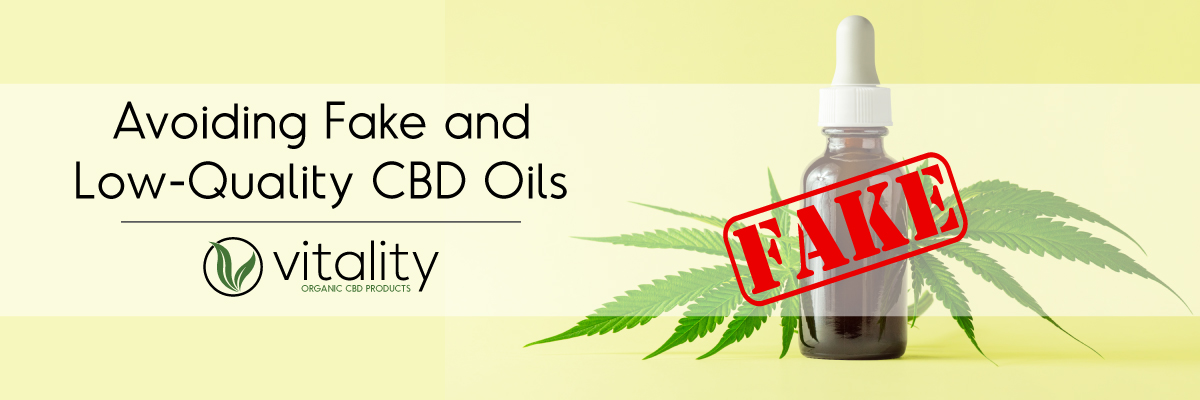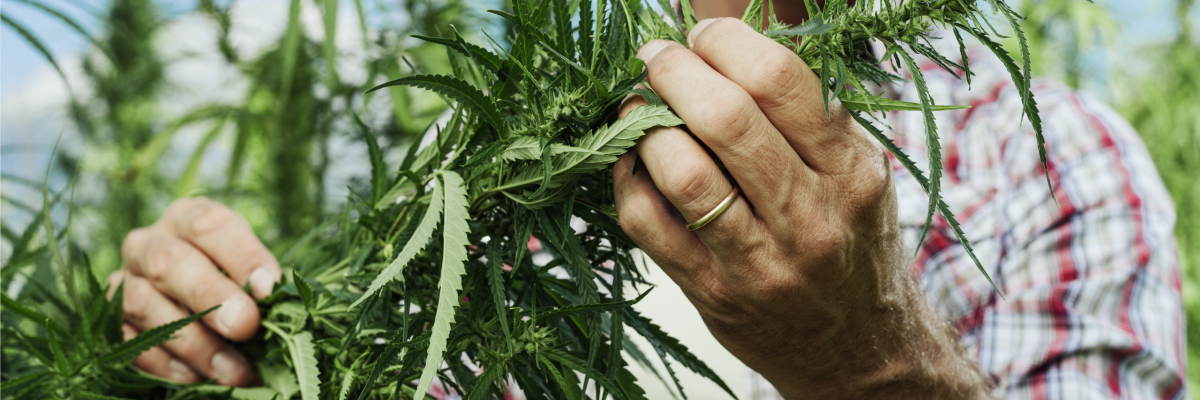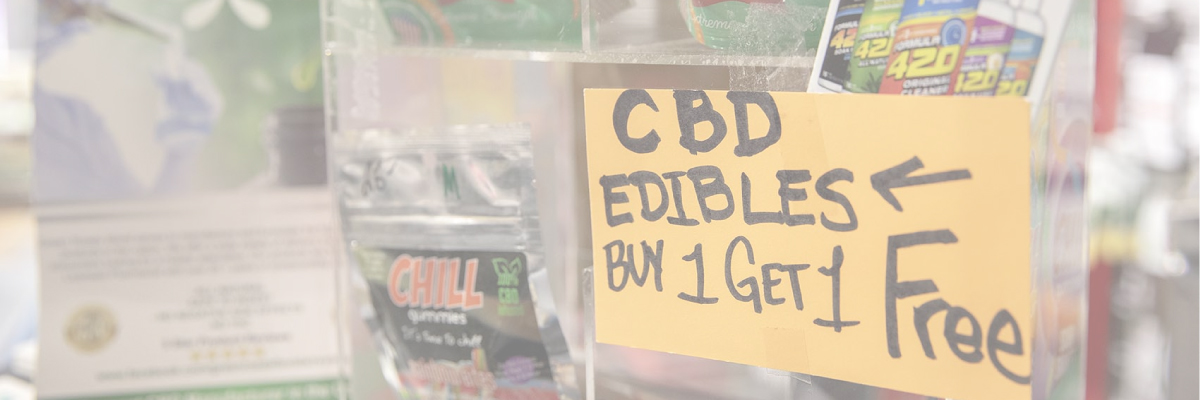
Avoiding Fake and Low-Quality CBD Oils
Tips to Help Avoid Fake and Cheap CBD Oils
Although CBD and other cannabis oils enjoy growing popularity, not all CBD products are organic, or even genuine. In fact, more information emerges each day to suggest that it’s increasingly important to learn how to avoid poor-quality or artificial hemp extracts and CBD oils. Fake CBD Oils are a real problem as regulations are slow to pass in each state. Many less reputable people and organizations are working to take advantage of this fact.
Understanding CBD Oil
By definition, CBD (cannabidiol) oil won’t get you “high,” and its beneficial quality can be subtle for some situations. That can make it difficult to evaluate how effective it is— as well as to tell the real CBD oil from fake CBD oil.
It’s expected that as further regulation positively affects the hemp industry, consumers won’t have to struggle to verify that they’re buying actual uncontaminated CBD oil.
CBD was reclassified in the U.S Farm Bill of 2018 in order to boost consumer safety. Yet people looking for safe, quality CBD oil should still consider a number of red flags before purchasing.
Chemical-Heavy Growing Practices
While hemp is a fairly hardy plant, companies that mass-market it for CBD and other products sometimes hasten the growing season in unhealthy ways. The reasons that hemp can be challenging to grow include:
- The growing climate of the cannabis provider may not be conducive for the most popular hemp strains requested by that growers’ client list.
- Common or specialty hemp plants are susceptible to pests such as aphids and mites
- When hemp is bred to be higher in either CBD or THC (depending on the ultimate product), the plants may be even more vulnerable to pests and climate conditions than common strains.
To counter these factors, mass producers may use unsafe growing practices such as growth boosters, which force plants to grow bigger than they normally would. Yet these growth regulators may not be rated as safe for human consumption.
Pesticides and fungicides used to control disease and insect predators are also potentially unhealthy. Many contain carcinogens that can make their way into the final products, including CBD oil. Unfortunately, with marijuana plants, the plant part that the pesticide tends to settle is the very part harvested for use— the flower bud.
Hemp farmers who use organic methods avoid these unsafe practices. They use methods like growing other plants that confuse or repel insects, or spraying with organic pesticides. Too often, the bigger the grower, the less likely they are to use these more labor-intensive methods.
That's why we stay small, stay local, and keep organic.

Negligent Practices
Mold and bacteria can be present if cannabis is grown in overly damp conditions. They’re also a danger if harvesting equipment hasn’t been cleaned properly. Perhaps most common, hemp plants that are stored in damp facilities before being processed are prone to fungal growth.
Finally, professional labs or home processing plants that don’t sterilize everything a plant touches can also introduce foreign substances. That means that CBD oil has several danger points, from germination through production.
Additional Contaminants
Along with dangers like chemical pesticides, bacteria and mold, CBD oil can also be contaminated with heavy metals and residual solvents.
In order to produce CBD oil, the cannabidiol is extracted from the plant with some type of solvent. These are normally safe, but smaller operations may lack the proper equipment to keep solvents like butane out of the final product. The best solvent is CO2, as it's a gas, and evaporates from the end product entirely. Unlike ethanol, which can linger in small to large quantities.
In addition, the housing unit of individual CBD products can themselves become a hazard, particularly cartridge delivery systems. Cheaper manufacturers use cartridges that leech heavy metals and plastic components directly into the oil. Users then unsuspectingly inhale or ingest those unsafe particulates.
At Vitality CBD, we do not sell vape oils, because health is one of our major concerns, and there's nothing healthy about vaping oil of any kind. While it may be safer than smoking (still unproved), it's not safer than simply ingesting the product.
Where do fake CBD Oils and Hemp Extracts lurk?
Do not buy your CBD or Hemp extracts on Amazon. just don't do it. Amazon doesn't actually allow CBD products to be sold per their terms and conditions. The same goes for genuine Hemp Extracts that contain cannabinoids like CBD. Many disreputable sellers are marketing Hemp Seed Oil as if it was Hemp Extract, and it's not. Not even close.
Hemp extract contains cannabinoids, Hemp seed oil does not. It's a cooking oil and food product, not a dietary supplement. It's no more a dietary supplement than canola or vegetable oil. For more on the differences between CBD Oil, Hemp Extracts, and Hemp Seed Oil, click here.
Fake and low-quality CBD products also lurk around gas stations, especially backwoods gas stations, and at small convenience stores. For advice on where to buy CBD oil, click here.

How Can You Find Quality CBD Oil?
For the new user, it can be hard to tell contaminated or fake CBD oil from real CBD oil. Examine the testing section of a manufacturer’s website and take note of their extraction methods. Most parts of the country require laboratory testing before these oils reach the marketplace. If a company doesn’t choose to test, its products should be avoided.
Fortunately, CBD and other hemp products have been around long enough that independent websites and magazines have sprung up to review the industry — and in some cases, to do their own testing. Also, Google Verified Reviews are generally a reliable source of credibility based on buyer experiences.
Our Final Tips
- Choose unflavored CBD oils. If you’re on a quest for organic CBD oil, you probably already know that products that are advertised as citrusy, sweet or “extra botanicals” use artificial ingredients. In fact, these additional flavors have probably been injected into the oil to mask the unappealing taste and texture that fake CBD oils suffer from.
-
Avoid products in non-sealed packaging. These may be fake versions of real products, or ones that have been purchased and adulterated. It's also just never a good idea to buy any product you intend to eat from an unsealed package in general.
-
Don’t buy CBD products that lack laboratory testing somewhere on the packaging. This testing should verify that it was found to be free on contaminants, and should also display the percentage of cannabidiol per container.
About Vitality CBD™
Vitality CBD exists to provide a healthy and natural alternative to the pharmaceutical industry. We embrace charity, sustainability, quality, trustworthiness, and domestic sourcing as our core operational values. All our CBD products are grown, harvested, extracted, and bottled all in American owned and operated facilities. Vitality CBD products are certified Non-GMO, Organic, Vegan, and Gluten-Free. Take 20% off your first online order with code FT20 today!



